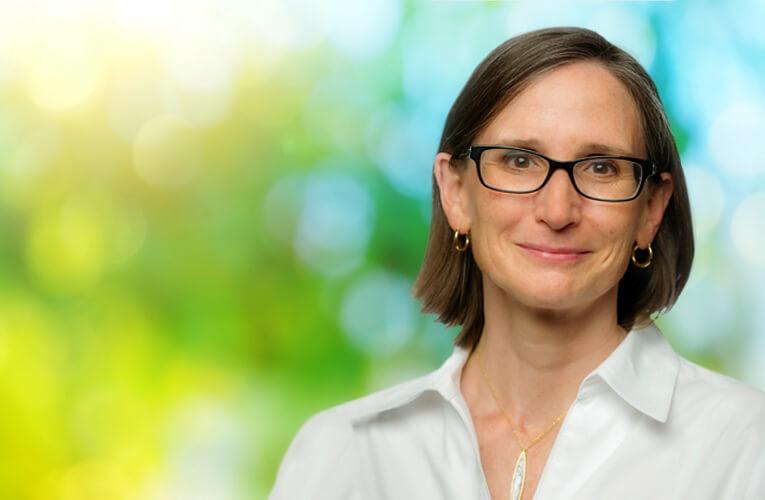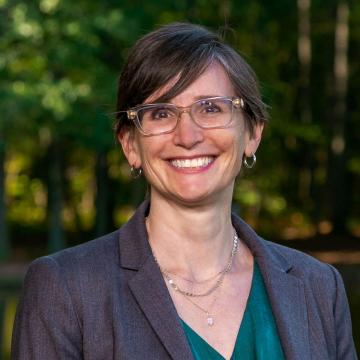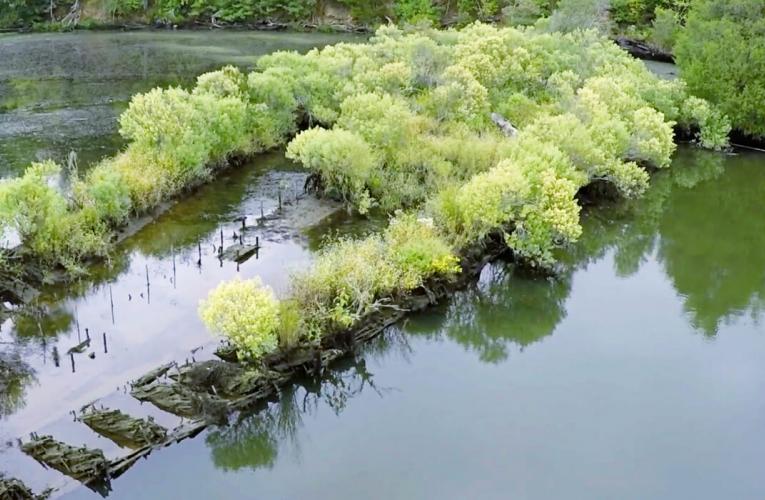Read more stories featured in the Duke Environment Magazine Spring 2021 issue.
Hello spring, where have you been? After the gloom of the last year, never have we more needed you and your promise of possibility, renewal, new beginnings—and dare I say it—hope.
As we emerge out of the pandemic fog, in the far distance we can now see an LED at the end of the COVID tunnel, and I confess that I am feeling particularly optimistic because I also see many windows of opportunity opening in the months and years ahead.
Let me explain.
Over the last year governments worldwide have demonstrated the essential role they play in defraying social and economic risks. Emergency support for jobs, income and housing was provided to workers and households at levels not seen since the 1930s.
What we are witnessing is a generational opportunity to validate the importance of the social safety net, even in a profoundly market-oriented society such as the United States. A social contract is a way for us to think about our obligations to each other—and we are seeing that social contract being renegotiated right now.
I believe we also now have an opportunity to affirm the role of government in forging a global compact to provide a safety net for our planet.
The momentum is there. We are moving away from narratives of skepticism, denial and under-reporting. Journalists on both the left and right are finding ways to tell climate change stories, and we are seeing profound shifts in public perceptions. Climate action is being institutionalized in the U.S. and globally.
In the U.S., within hours of taking office President Biden rejoined the Paris Agreement and then pledged for our country to be net zero by 2050. This includes making our power sector emissions free by 2035.
There is, of course, still much hard work ahead to rebuild and repurpose our federal agencies, enhance their capacities to foster environmental progress, and demonstrate the ways an efficient and effective government can serve the common good.
But like the new growth I see outside my kitchen window, signs of hope are emerging.
Asset managers have pivoted toward carbon-neutral strategies. Tech is pushing green investment and green energy. They are leveraging their market power with ambitious climate targets and are facilitating and accelerating the transition to green energy with strategic purchases to achieve these goals. It is imperative the U.S. continues to send a strong signal and demonstrate action as a leader in this global effort.
Internationally, we are seeing significant new climate commitments from the industrial economies of China, Japan and South Korea. The European Union is pushing forward its own Green Deal. Britain is now coal free. Globally, new installations of wind and solar reached record levels in 2020.
So far, so good.
But to fast track a new climate compact and emerge stronger than we were before, we need to use every tool at our disposal—science, technology, industrial policy, regulation, and carbon pricing to send the right signals to lessen the risks from climate change and move to a clean energy economy.
We need to harness collective efforts from universities, businesses, industry, nonprofit organizations, entrepreneurs, researchers and the public sector.
In the U.S., we need to move beyond governance by executive order to build more durable bipartisan legislative solutions, which are better both for industry and the public because they reduce the whipsaw uncertainties that come with changing administrations.
Immediate progress is possible in two areas—energy infrastructure and health, both of which are bipartisan priorities.
Policymakers on both sides of the aisle increasingly recognize that a cleaner, more reliable and resilient energy grid creates knock-on possibilities for decarbonizing transportation, manufacturing and other sectors of our economy, while also preventing mass outages like those we saw recently in Texas due to extreme cold and in California due to wildfires.
The connection between climate and health is another great opportunity. Linking climate change action to reduced cardiovascular and respiratory illness and a more secure food supply are middle-of-the-aisle issues that can build coalitions from Montana to Manhattan and help reduce escalating healthcare budgets.
To succeed on these fronts, we must also compassionately manage the social impacts of a transition away from gas-fired and coal-fired power. What happens to this generation of workers and their families will have political, social and economic consequences for decades. Greater investment in retraining and advising those who will lose their jobs will pay enormous and long-lasting dividends.
In 2050, when we look back in time, I want the Nicholas School and Duke to have played decisive roles in achieving these goals and helping us finally turn the corner on climate change.
I want to see the names of our faculty and graduates populating the headlines as leaders who have developed trailblazing science, innovated new directions in government policy and regulation, changed industry practice and direction, and pioneered as thought and action influencers in the nonprofit realm.
Turning these hopes of a global climate compact into reality won’t be easy, but if we all engage as educators, researchers, consumers and citizens, we can get it done. This is the season of opportunity. Let’s get to work.





